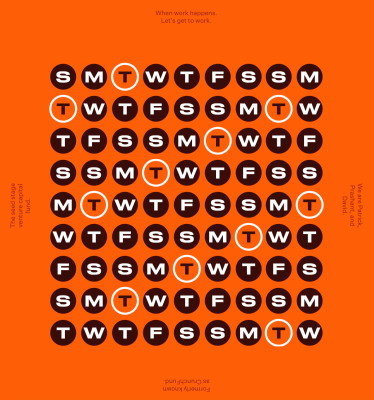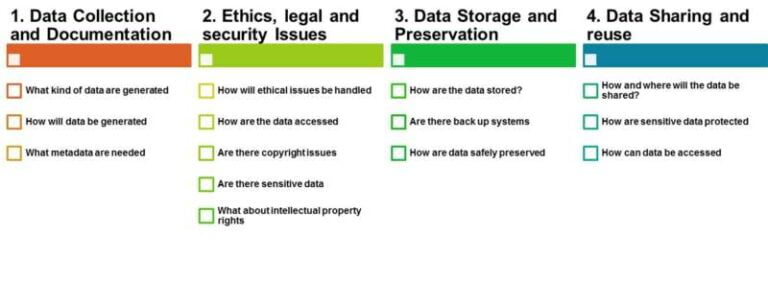
The word “deadline” in digital is terrifying. They are waiting for him, they are afraid of him, because of him they part with performers and terminate contracts.
What needs to be done so that any deadlines are not terrible? We give advice to both customers (marketers, business owners) and performers (agencies, freelancers).
Why are deadlines being disrupted?
Reason 1: laziness and procrastination
Probably, this is familiar to everyone. When work gets boring, you do everything to delay the moment of execution, and then 2 days before the deadline you work at night in emergency mode.
Reason 2: Lack of experience
Often the terrible “Dead Line” overtakes newcomers – and from both sides of the barricades. Beginner performers and marketers simply lack the experience necessary to accurately predict how long a task will take.
Reason 3: inability to plan time
Time management was not invented in vain. If you let work on orders and control over them take their course, at the end of the month, the backlog tends to accumulate. And if urgent orders are suddenly added to them – turn off the lights, the accumulated deadlines will grow like a snowball.
Reason 4: force majeure
No one is immune from illness, lack of Internet and other misfortunes. And especially the risk of deadlines being disrupted due to them is inherent in freelancers. Unlike agencies, which can often quickly replace an employee, freelancers, as a rule, simply have no one to delegate their tasks to.
Tips for the customer
- Set real deadlines
We have all seen wonderful tasks on the exchanges in the spirit of “write 50 thousand characters in 2 days” or “make a cool website in a week”. Such TK is disrespect not only to the performer, but also to oneself. Even if the freelancer makes it on time, he will show you a crooked, oblique Frankenstein, hastily assembled. And what will you do with it?
Therefore, always estimate how much time it will take to complete the task WELL, and not hastily. And add to this period a couple more days (or even weeks) for various force majeure. After all, as you know, shit happens.
Another danger is not to set deadlines at all or extremely vague. “Do as you do, and you will pass” – these are the words every freelancer dreams of hearing, but in fact everything often turns out to be the same procrastination. The exception is if the performer ate the dog in time planning. Or he really needs money.
- Add time for edits
Well, where are the edits in the digital? Anyone, even the most talented performer, won’t develop telepathy and do everything flawlessly the first time; yet, at least one revision is acceptable.
Furthermore, revisions are like a game of Russian roulette: you never know how many there will be. The only exceptions are those independent contractors with whom you have prior experience and who best reflect the scope of their expertise, capabilities, and talents. Lay on the revisions plus a couple extra days by the scheduled date.
- Monitor the work
It’s not enough just to put the order to work and wait for the result. Especially if we are talking about large projects – in this case it is better to monitor the progress of work and keep your finger on the pulse. But what should the customer do – really write to the contractor every day and demand a report?
No, of course not. Set up a project board in Trello, assign performers to each task, set deadlines and watch how things are going. You can also split the task into several parts and receive a report after each stage is completed.
Tips for the performer
- Do not take urgent tasks
Don’t even consider racing to attractive offers with time pressure if you are a rookie. Fill your hand first by calculating how long it takes to do a specific task. Expert freelancers should only accept urgent orders from customers they can trust.
- Set yourself a shorter term
Yes, we advised customers to add to the average time of work on the project plus a couple of days, but it’s better for performers to do the opposite. If possible, we advise you to immediately tune in to the fact that you have to do your work a few days ahead of the agreed deadline.
- Break down tasks into subtasks
An effective tactic that helps both beginners and experts. When you take on a large-scale order, it is sometimes difficult to approach it. Scary, after all. But once you break one big task into many small ones and distribute them by day, it will become much easier. This is a well-known psychological trick known as the strategy of small steps. It helps to fight procrastination, and is also the basis of the basics of time management.
- Start with the difficult
The old proven way: if there is a lot of work, start the day with the most difficult or unpleasant. And for dessert, leave what is interesting. So you will spur yourself to get rid of the routine as soon as possible and get down to what you really like.
Another rule is to load the first half of the week to the maximum. Let Monday, Tuesday and Wednesday be as tense as possible, and on Thursday and Friday you can relax a bit. In addition, you will have plenty of time if urgent tasks suddenly appear.
- Use the timer method
If you can’t plan a day, have difficulties with discipline, watch TV shows and social networks instead of work, try this method. Mark 25 minutes, then close Facebook and work all this time without stopping. Then take a 5-minute break. Then another 25 minutes of work – another 5 minutes of rest. Repeat this 4 times and relax with full right – rest for an hour. And then – all over again!
- Don’t forget to rest!
Perhaps this is the most important point. If you work all the time, recruit new tasks, do not feel sorry for yourself — it’s easy to burn out. And also get health problems, depression and other delights of a chronic workaholic.
Now, if you are a freelancer and are ready to take a serious approach to meeting deadlines, you can check if there are any suitable freelance tasks for you on ITHire.com.






